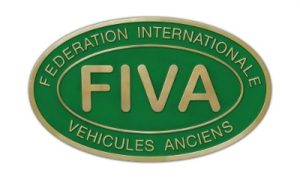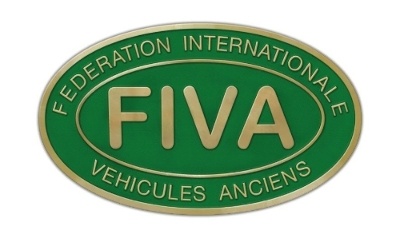by Tom Heavey
 At the annual General Assembly of FIVA (the Fédération Internationale des Véhicules Anciens, or international federation of historic vehicles), held online on the 20th and 21st of November 2020, the mood was upbeat and optimistic that 2021 will see a return to post-pandemic normality. In the words of FIVA president Tiddo Bresters, “Let’s hope we’ll soon be in kickdown, rather than lockdown.”
At the annual General Assembly of FIVA (the Fédération Internationale des Véhicules Anciens, or international federation of historic vehicles), held online on the 20th and 21st of November 2020, the mood was upbeat and optimistic that 2021 will see a return to post-pandemic normality. In the words of FIVA president Tiddo Bresters, “Let’s hope we’ll soon be in kickdown, rather than lockdown.”
At the same time, a serious note was struck over the priorities for 2021 when it comes to protecting the long-term freedom of owners to use historic vehicles on the roads. “The transition to fossil-free energy is an enormous challenge,” said Tiddo Bresters. “We want to see the ‘moving museum’ of historic vehicles in the 2030 landscape and beyond, and to do this we need to spread our message to the rest of society, helping people to understand our passion for motoring heritage.
“We cannot do without lobbying. In the past, our focus has been primarily on the EU but we must make sure to be heard all over the world – where the same concerns and arguments apply. So in 2021, FIVA’s Legislation Committee will be ‘exporting’ its hard work more widely outside the EU, helping to ensure we are united around the world.”
The lobbying activities will be strongly supported by the results of FIVA’s Socio-Economic Survey carried out this year – and which will soon be published. The worldwide survey looks at such factors as the number of historic cars, motorcycles and utilitarian vehicles in each country, and how many miles are travelled; what is the average age of owners and how much typically do they spend (i.e. their contribution to the economy of that nation).
“Two further factors in protecting our heritage are the need to bring younger people on board, something we have worked hard on in 2020 via social media channels, and also international cooperation,” continued Bresters. “On this latter point, FIVA’s close relationship with UNESCO is of vital importance and we were thrilled to be joined in our annual meeting by Dr Marie-Claude Machon-Honoré, Chairperson of the NGO-UNESCO Liaison Committee. UNESCO and FIVA share many common goals in protecting, preserving and promoting our heritage, and as Dr Machon-Honoré emphasised, both organisations see the younger generation as vital to the future. She kindly acknowledged FIVA’s hard work in communicating our passion to young people and said, ‘UNESCO strongly believes in the power of heritage as a positive force to preserve identity, and the sense of belonging to communities, especially for younger generations’.”
FIVA (the Fédération Internationale des Véhicules Anciens) is the worldwide organisation dedicated to the protection, preservation and promotion of historic vehicles and related culture, as well as their safe use. Since 2017, FIVA has been a non-governmental partner of UNESCO. For more information, see www.fiva.org.


